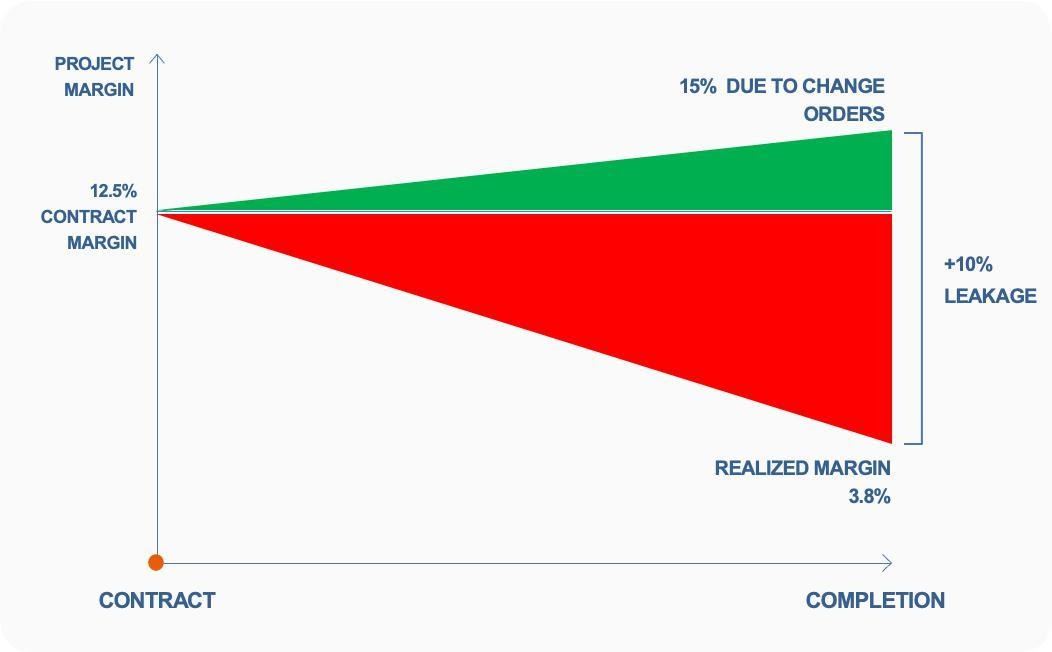by Duncan Oyevaar
Research of the entire value stream of engineering services organizations combined with the financials shows a substantial negative gap between the actual and the potential profitability.
According to the 500+ engineers, staff, and leadership involved in our research - improving commercial understanding is key to close this performance gap. It’s therefore essential to invest in the commercial growth of the engineers, indispensable for the organization and for delivering the valuable services clients ask for continuously.
This behavior change requires leadership to stimulate cross-functional training and action learning to incorporate commercial awareness in their daily work.
Research found that the commercial profitability for Engineering Service Organizations has a potential of at least 14% EBIT (Earnings Before Interest & Tax). But on average most engineering companies underperform financially with an EBIT below 4%,resulting in engineers being undervalued and underpaid for the value they add to our society and daily lives. Consequently, there is little room for investments or a salary raise. This is further hindered by the strong cash absorption caused by long order to cash lead-times, measured by the number of Days Revenue Outstanding (DRO).

The main reason for the low financial performance is caused by margin leakages, generated by the lack of business insight and commercial cooperation in the value stream by engineers. The sources of margin leakages are many and involve the entire value stream.
Engineers are trained in their specialization and not necessarily in recognizing opportunities for creating the best value for their clients and their organization at the same time. The total size of the margin leakages is >10% of the total revenue - this underscores the need for a drastic increase of business savvy knowledge and enhanced cooperation of the departments within the engineering companies.
Business Savvy Engineers
Business Savvy is an understanding of how a company works and what it takes for it to grow sustainably towards more outstanding results—recognizing how strategies, behaviors, actions, and decisions affect the numbers and drive the organization's profitable and sustainable growth.
In addition, it enables engineers to use this knowledge to understand their customers' business objectives, becoming a true Business Partner instead of just 'an engineer.'
Therefore, engineers must be stimulated and facilitated by the leadership to understand and speak the language of business by becoming Business Savvy.
Business Savvy makes the connection between the engineers' involvement, the added value for the client, and the company's success. It helps understand the benefits of being involved, the perception of value for the client, and how it makes money. It makes engineers more commercially engaged, taking ownership and responsibility for improvement.
Business Savvy Culture
But it is not only about the numbers; it's also about creating a Business Savvy Culture. Financial results will only be sustainable when a change of behavior is established. Companies will not change their corporate culture through punch lists and ticking boxes. They will only succeed by enabling their employees to feel empowered to make the change. There are 6 kind of behaviors that form the basis of a Business Savvy Culture:
- Value Driven: The organization focuses on creating value for customers, the organization, and the employees.
- Transparent: Employees have insight into how their work affects the financial performance of the organization as a whole.
- Entrepreneurial: The organization chases opportunities and takes action based on estimations instead of certainties.
- Collaborative: The organization works cross-functionally for a common purpose.
- Interactive: The employees discuss at least monthly the performance information.
- Appreciative: Everyone in the organization appreciates the performance of each other to learn and to celebrate.
Business Savvy Culture empowers the engineer and staff to commercialize the value by their service provision, reflected in improved sustainable operational and financial results.At the same time, the culture enables a proud and satisfying feeling when a project is successfully delivered technically and commercially, enhancing the engineer's job satisfaction, retention, and growth.
About the Author
Duncan Oyevaar began his career being responsible for business development at an engineering company. He gained extensive international business experience and achieved the $250 million Dow Ethylene Project award in the Netherlands. At one of the Netherlands' largest power producers, he had various jobs from M&A, Project Director Lean Power Plants up to the management of Industry Parks in Germany. Since 2011 he is the founder and CEO of OpenBook.Works and created the Business Savvy Engineer Program. He holds a BSc in mechanical engineering, a finance degree from Ashridge Business School, and a management degree from INSEAD.
CREATING BUSINESS SAVVY ENGINEERS
by OpenBook.Works
info@OpenBook.Works
